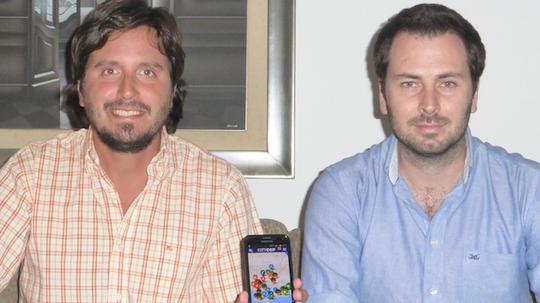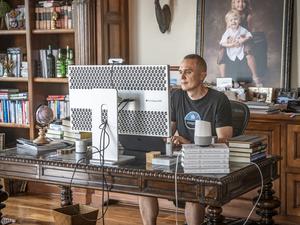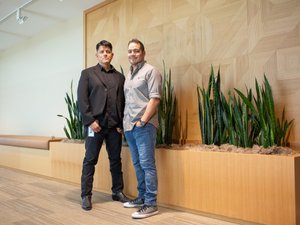
In the past couple decades, journalists, civic justice groups and everyday citizens have sought new ways to capture and analyze crime data. The uses are almost endless. You can track a variety of safety metrics or conduct complicated comparative queries to identify patterns of minority arrests, officer-involved shootings and much more.
But, for most of us, the most common question is: Am I safe here and now? And am I safe wherever I might be headed next?
That's the data CityCop, a startup founded in Uruguay and now housed at Techstars Austin, hopes to deliver.
Like other crime mapping apps before it, CityCop gathers available data from local police departments to show you what has been reported through official channels.
But, CityCop's real power is in user-reported crime -- essentially crowdsourced crime reported through the app, social media and elsewhere. These are the types of broken window, slashed tire reports that most of us don't have the gumption to report to authorities -- let alone to Google it or call authorities the day after to learn more. But we all want to know what's up in the neighborhood.
"You want to know right now if something is happening around your children's school or your home," CityCopy co-founder and CEO Nadim Curi told me.
And he's right. Most of the crime reports in Austin and elsewhere aren't publicly available until at least a day or two later. So, if CityCop is able to generate enough users to report crime -- be it a bike theft or vandalism or a fight -- we'd all have a better understanding of the recent history of the neighborhoods we live in and walk through on the way to a friend's place, a bar or wherever.
Curi said CityCop has had a lot of success in Latin American countries. People are reporting crimes faster and with more details than what you might find if you queried for a police report. The business has also gotten more attention because of significant media coverage in South America, Curi said.
Curi said he got the idea for crowdsourcing crime reports in 2013. He was inspired by Waze, the app that uses data from people's phones to help you find the fastest way home. He thought, 'what if we applied this to other aspects of public safety?'
"It's another massive global problem," he said.
By 2014, Curi had a product idea and conducted a pilot project in Montevideo, Uruguay, where he is from. It landed about 30,000 users in three months, he said. And he started thinking globally about the potential -- knowing full well this is the type of idea that is winner takes all.
CityCop pushed into Argentina in 2014, a country with plenty of crime. New reports picked up on it without CityCop conducting a big PR campaign. After CityCop entered Startup Chili, the tech incubator, Curi said CNN did a story that mentioned them and things started to take off -- even though CityCop had nothing to do with getting the app publicized.
"That was kind of a funny fact and it crushed our servers and we realized we had to increase the capacity of our servers to keep up with demand," he said. "It was something really organic."
Curi said CityCop landed more than 10,000 users in Santiago and later added about 80,000 in Brazil, mostly in Sao Palo and Rio de Janeiro. Now the startup is at Techstars Austin hoping to catch a wave in the US market. Curi said almost every big, winner-takes-all type idea proves itself in the US.
"We always thought about the US since we launched and that it was the right place for us to be and scale globally," he said.
Curi is already thinking about rapid expansion and it is using artificial intelligence to forecast the probability a reported crime is accurately reported because he believes accuracy will become a key proof point. But, in the end, he's really hoping to give people something that helps them better understand their surroundings to stay safe.
"I always thought I wanted to do something great," he said. "I wanted something to have global impact and change the world in some meaningful way. I just wasn't sure what that would be."
Curi hopes the app also forces criminals out.
"We truly believe when a community uses CityCop and this information is easily available, criminals have two options: Change their M.O. or go elsewhere. In both cases, it's riskier for them. And that's good for us."







